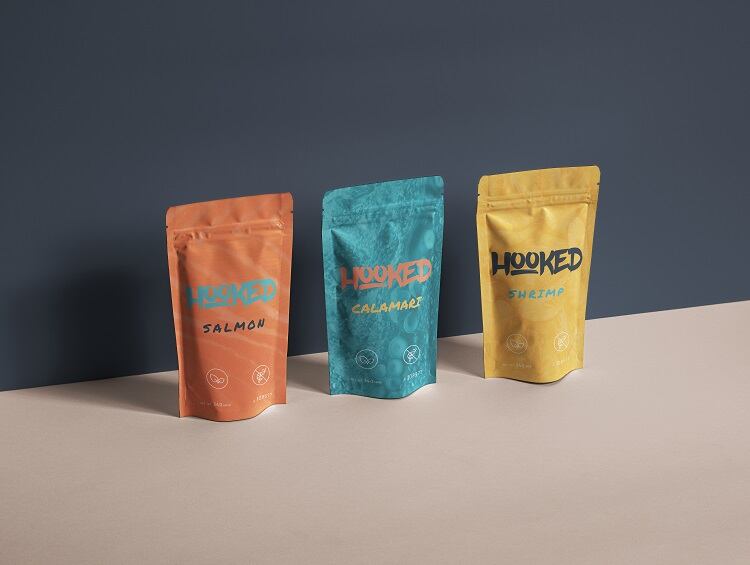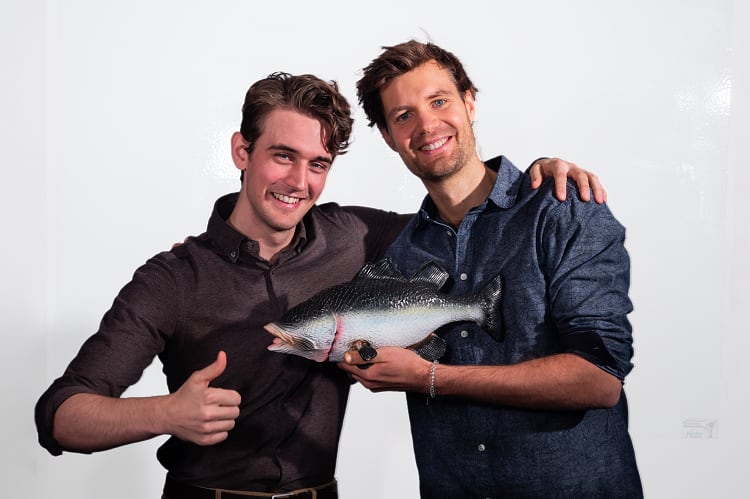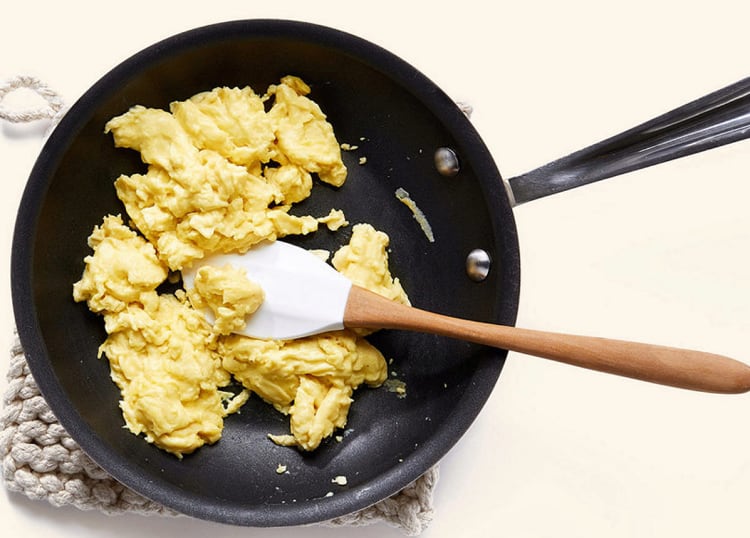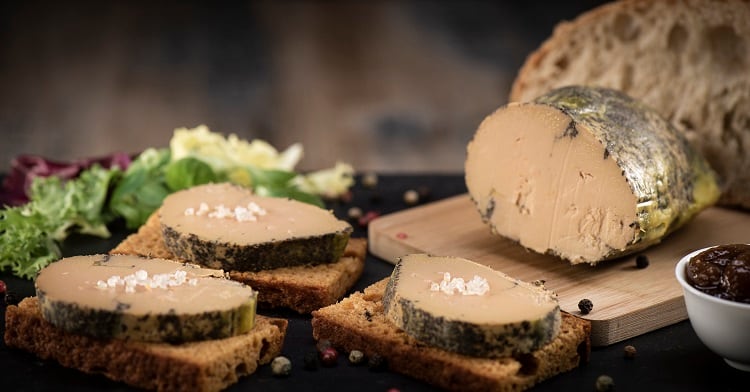Hooked was founded by Swedish entrepreneurs Emil Wasteson and Tom Johansson early last year after Johansson’s sister took the plunge into veganism. “There existed very few products and none that tasted good, or had the same nutritional value as traditional seafood,” Johansson recalled.
Upon further research, the duo became increasingly concerned at the state of the seafood industry. “It became obvious that the current seafood industry is environmentally unsustainable, and that seafood consists of more toxins than ever before.
“With the booming of plant-based foods, we saw a great market potential as well as an opportunity to make a large social impact.”
An unsustainable industry?
Originally, Johasnson was most concerned by shrimp farming practices in Asia, where the aim is to produce as much shrimp as possible, in as small an area as possible, he told FoodNavigator.
These two factors, combined, lead to unsanitary conditions, he continued: “It gets dirty very easily, and then they use antibiotics to make it clean.”
Yet given the demand for salmon and tuna in Europe – two of the most consumed seafood products on the continent – the team decided to change focus. “We found that the problem with shrimp is essentially the same for tuna and salmon. The issue lies in producing as much as possible for as low cost as possible. Demand is growing for seafood, what is [compromised] is the health of the animals and the planet,” said Johanson.
In the tuna industry, overfishing – whereby fish are caught at a faster rate than they can reproduce naturally – is a serious concern. In European seas, 65% of fish populations are overfished. In the Mediterranean Sea, this figure is as high as 96%.
The overfishing of tuna is threatening the species, said Johansson. If tuna become extinct, the whole ecosystem will collapse, he continued, adding that as tuna are higher up the food chain, they are more susceptible to ingesting the toxins and plastic pollution the oceans.
“Changing the way we consume food is needed more than ever for us to live sustainably on the planet,” co-founder Wasteson told this publication. “Our seafood consumption has increased rapidly the past 20 years and it is estimated to grow by 30% before 2030.”
At the same time, the seafood industry is fragile, and we have higher levels of antibiotics, mercury and microplastics in our seafood than ever before, Wasteson continued.
“By consuming Hooked’s products, consumers can enjoy seafood without any of these negative consequences. We are meeting the rapidly increased seafood demand with healthy and tasty alternatives with a production that can scale without harming the planet.”
Shredded plant-based salmon and tuna
Hooked’s first two products – shredded plant-based salmon and tuna – are intended for use in pasta dishes, on pizzas, in wraps, salads, and bowls.

Both products are based on soya protein isolate, Hooked’s chief technical officer Peter Liu told FoodNavigator. “We want to mimic the real nutritional value of [conventional seafood]. Most of the plant-based meat that you see on the market…may have good texture and taste, but the nutrition is not there. So we want to make our product as healthy and as nutritious as possible.”
To bring in flavours of the sea, the products will also contain sea-oriented raw materials, such as seaweed and sea algae. Algal oil will provide omega-3 fatty acids, including DHA and EPA. Texture will be achieved through use of a wet extrusion method.
Both the flavour and texture of the salmon will be ‘very different’ to that of the tuna. The team plans to use natural flavours, such as carrot, to achieve the correct colouring, as well as smoked ingredients for the taste profile.
While Hooked’s ‘hero product’ will be the salmon, the start-up expects to launch the tuna alternative first, which it is has developed in collaboration with a co-packer in the Netherlands
Next steps
Hooked is targeting the European market, where it says vegan seafood alternatives products are limited, and either expensive, low in nutrition, or poor in taste. “Hooked is tackling all these three key areas with vegan tuna and aims to do the same for the world’s first shredded vegan salmon product that is currently being developed.”
In terms of achieving scale, the start-up has confidence in its co-packer and plans to stay with the Dutch operation long-term.
And concerning the start-up’s commercialisation strategy, Hooked is exploring foodservice and ready meal sectors, before entering grocery ‘later on’. “To enter grocery, we need to expand our portfolio to at least 4-6 SKUs and have a solid business in restaurant. After creating a strong market position in our local Sweden market, we are going to our neighbour countries in the Nordics,” we were told.
“[Our] vision is to become the leading plant-based seafood company in Europe.”
Hooked was recently selected to join ProVeg International’s business incubator, which will help the start-up focus on raising investment to support product distribution, marketing and scale.
“It means a lot,” Hooked co-founder Tom Johansson told FoodNavigator. “Not only the grant of €20,000, but the approval that they believe in the team and the company. They want to see it grow to the next level.
“We are five weeks into the programme and have received a lot of inspiration, great knowledge, and contacts to go to market.”





